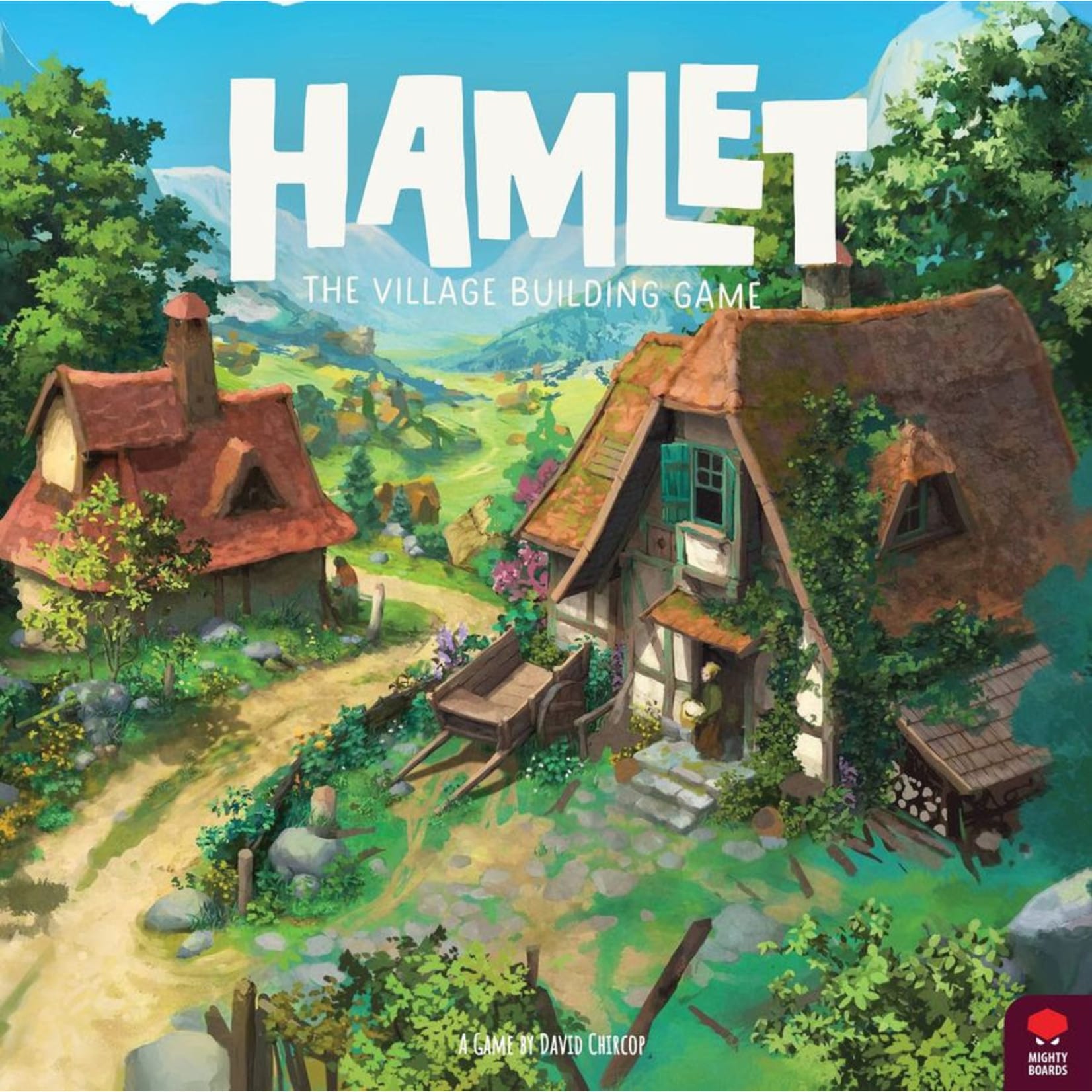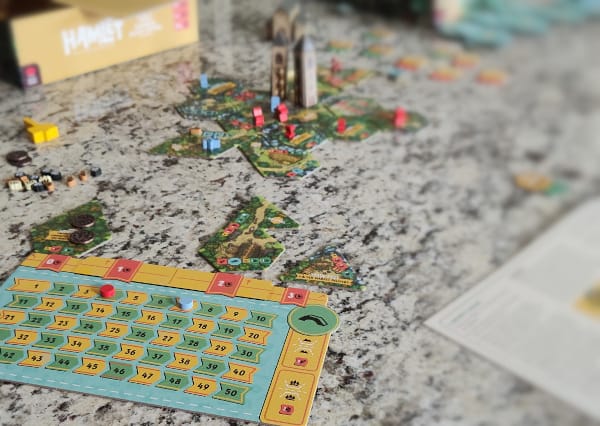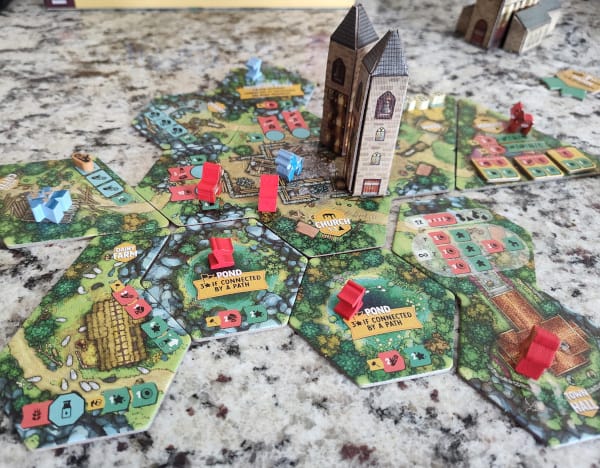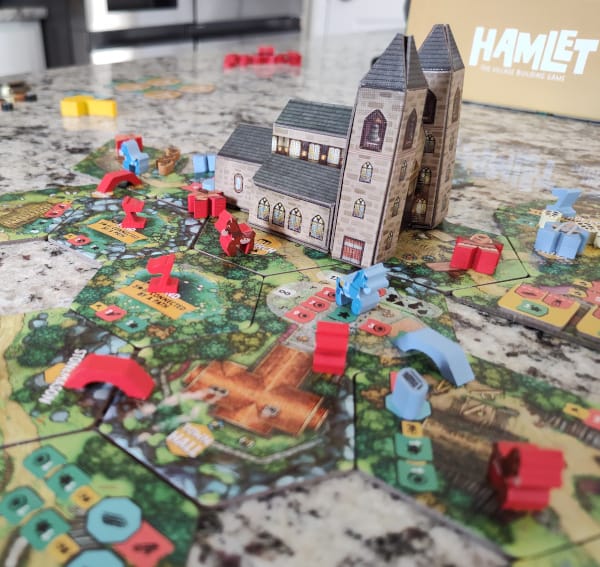Hamlet Board Game

I had an interesting find at a local pawn store the other day. The game Hamlet is a village building game where your goal is to build a church, and graduate into official 'village' status. I wasn't sure when I'd ever get the chance to play it, but the version I found was a Kickstarter Founder's Edition for a pretty decent price. FOMO got the best of me. This write up is not an overview of the game, but it is a review of how fun it was given a full faith effort/playthrough.
I finally got the opportunity to try this game out, but not before trying to sate my curiosity with what others had to say about it across the interwebs. To put it lightly, reviews are mixed. A common complaint about the game is the how, as the game progresses, it becomes more difficult to play due to the size of the pieces. As more turns pass, more little pieces get added to the game, turns take longer, and a little more dexterity is required to move the pieces around the board. Admittedly, this does become a bit of a problem. However, I hope to provide a bit more of a positive reflection on the game, as my friend and I enjoyed it quite a bit.

By far the longest aspect of playing this game for the first time was learning the rules. My one major complaint about the game would be simply that there must be a better way to communicate the rules. Perhaps there isn't; I'm not a game designer. But the rules and setup took a good hour to an hour and a half to read through and really parse and understand. Having said that, now that I've done it once, I'm excited to do it again, if for no other reason than I can just jump straight in to the game and have more time to enjoy it.
Playing
The game itself is a resource management and tile placing game. Many various mechanics play into how the scoring unfolds throughout and at the end game, but honestly I found myself not caring too much about if I won or lost by the end. I was just having fun seeing what I could build and how much I could manage to do in one turn. Perhaps subsequent plays will feel a little different, but I can't imagine it not being fun just playing the game and not worrying about the score too much.
In fact, I often found myself rooting for my opponent as he figured out ways to maximize his turn economy and make massive gains across the span of a turn. It was awesome watching him figure out that he could score massive points if he just moves this donkey here and that villager there. By the end of a turn, we felt like we'd accomplished something, and I think that is where this game really shines.
Sweet, sweet reward$.

Almost every action you take in the game rewards you. Need to produce more wood in order to refine it? Take two gold pieces for your trouble. Need to build a road in order to access the new mill? Every bridge you build counts as points in the end. I can't thing of any aspect of the game that doesn't reward you somehow, and I have to believe that was entirely intentional. And even beyond the initial immediate reward you get for doing something like constructing a new building, you then also gain access to even greater longer term rewards. For example, if you're the first one to construct a refinery you immediately get the point reward for doing so. Then you're rewarded with every resource of a particular type that you refine being worth double when used.
The combination of immediate reward alongside long term benefits incentivizes you to take risks and see how things pan out in the end game. This had me doing things like selling off a bunch of resources to gain gold and buy a part of the church for immediate points gain. Then I tried out a few different building tiles that score in unique ways, and are dependent on your contributions in the Hamlet. My friend took a much more pragmatic approach, and as a result I took an early lead but he dominated in the late mid to end game. He managed to accrue many more workers than me and was able to do a ton of stuff on his turn. Note to self, don't forget to hire more villagers early on!
Conclusion
Hamlet was a very fun game that I very much look forward to playing again. Is it perfect? Of course not, but it scratched an itch I'm not sure I knew I had. There is a solo mode I've yet to try, but I think playing with another person or two is where it's at! If you get the chance to try it, don't let the negative reviews out there deter you.
May your villagers be many and your Church be thriving!
